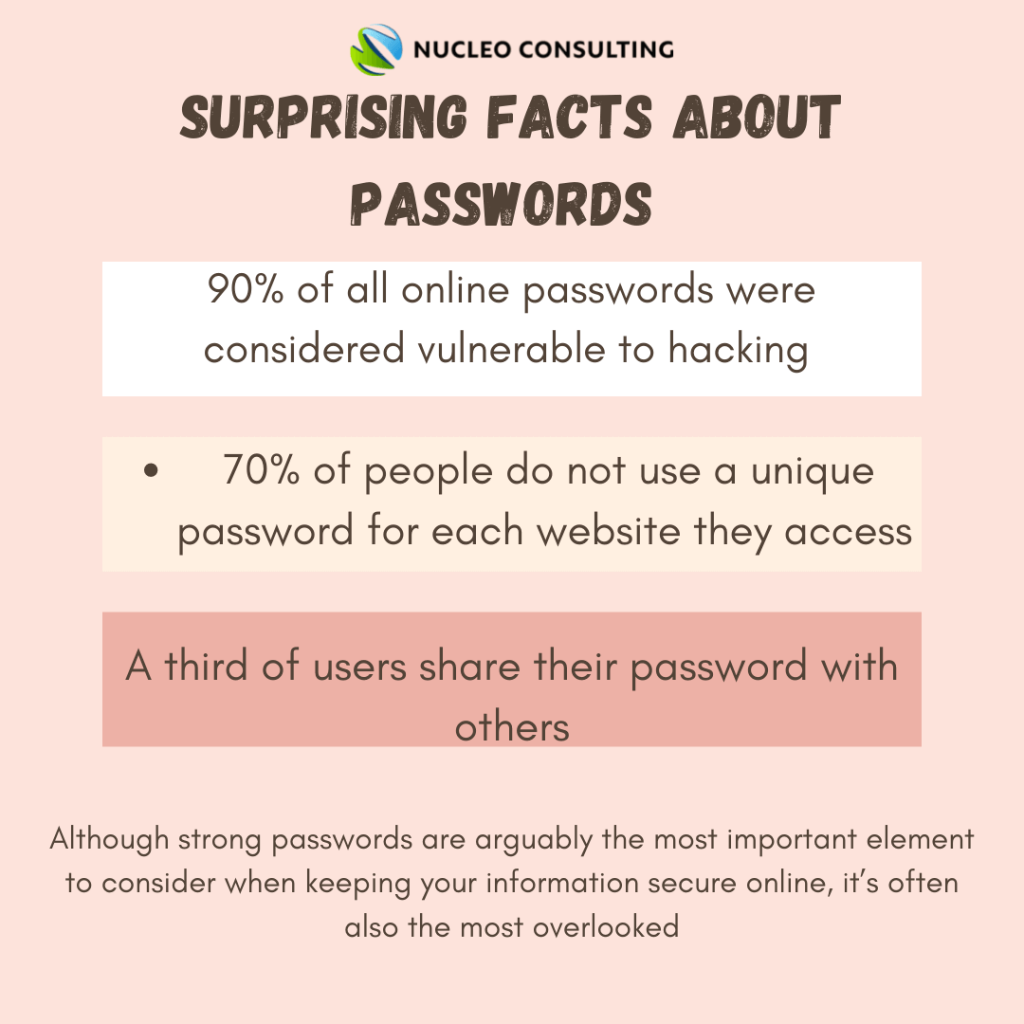Do Not Pass On A Strong Password
We’ve all been there – creating a new account for an online service or a newly discovered online shop we can feel will be our new favorite (until we finally run out of money/wardrobe space); we’re asked to create a password and… well, they’re always a challenge to remember so, let’s just go with something simple like ‘admin123’ or use the same password as we use for our online banking, and our email address because we’ll definitely remember that.
Whilst choosing a password may feel like a rigmarole – an unnecessary step to getting to the information you need, making changes to your accounts or maintaining your websites, in reality, passwords are one of the most integral elements used to ensure your, often sensitive, information is kept safe online. It’s easy to overlook passwords, particularly for things like websites and Social Media, which will undoubtedly have more than one user, but – particularly for businesses – it’s these customer-facing platforms that are absolutely the most important places to exercise a strong password.
Let’s look at the importance of a strong password:
Securing your site against hackers: hackers – people who gain access to the back-end of your website without permission – love rummaging around websites, and changing things they shouldn’t; deleting important information, replacing corporate images with x-rated ones or locking you out of your own site. Hackers can do a lot of damage, not only to your website, but also to your reputation, and one of the easiest ways for them to get into your website is by guessing your password. Having a strong password – i.e. one that’s not easy to guess – will reduce the risk of harmful hackers getting in and messing things up.
Reducing the risk of viruses and botnets attacking your site: created by hackers and bitter developers with nothing better to do, viruses love getting into websites and breaking things for the fun of it. What’s more, once they’ve completed their nasty little task, viruses often move on and start attacking other websites associated with yours in some form which, let’s be honest, is not only dangerous for your own website, but also potentially damaging to relationships with any sister companies you may have – it’s one thing to repair your own site, it’s another to have to repair 2 or 3 others, too!
Helping to ensure your website is always available: if your site gets hacked or gets a virus, you’ll more than likely have to isolate and repair it, which means that it’ll be down or broken until you’re able to fix it. This will inevitably have a negative effect on your online sales & enquiries; if your visitors can’t access your site, can’t get the places they need, or can’t take the right actions, they’re incredibly likely to leave and go to your competitors, whose sites will be working properly. Whilst it may seem a little dramatic and far-fetched, in reality, a malicious attack on your site thanks to a weak password can lead to a loss of income; something no business wants to experience.

In essence, no. In today’s world we should all be hyper vigilant when using or signing up for any online system or service as hackers can hide in lots of places. But if your organisation isn’t doing enough to drive the message home through effective cyber training, eventually there is the potential for this to happen.
This means that IT departments need to rethink their existing security strategies to help protect their employees working from home.
